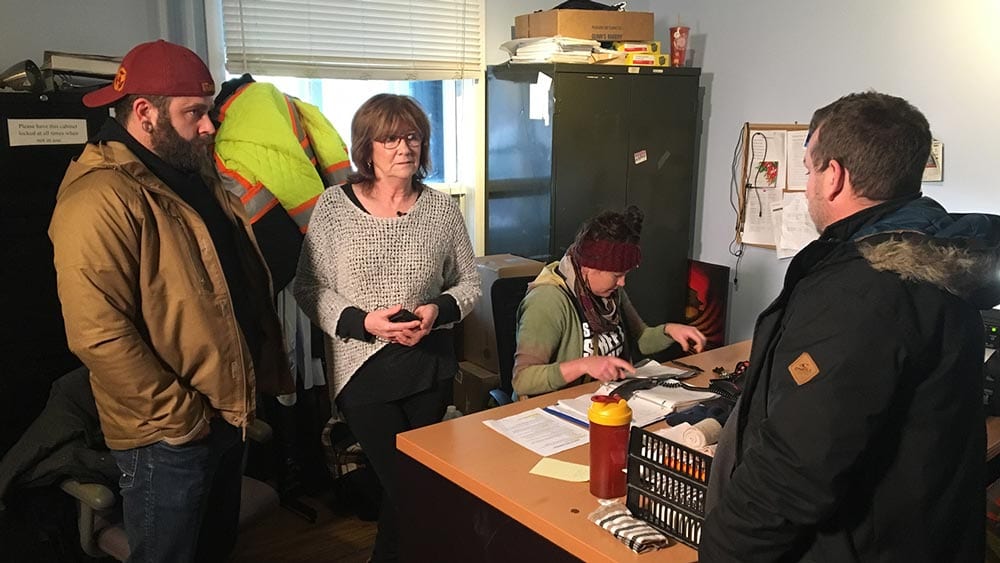Halifax Regional Council adopted a motion to immediately remove the statue of Edward Cornwallis in a 12-4 vote on Tuesday.
The statue will be temporarily put in storage.

Following that move, council will proceed with plans to form an expert panel to determine the statue’s fate and how to commemorate a man who once issued a bounty on Mi’kmaq scalps.
The decision comes days after the Assembly of Nova Scotia Mi’kmaq Chiefs demanded the statue’s immediate removal, saying the process to form the panel was taking too long.
Halifax Mayor Mike Savage and most councillors who supported the motion Tuesday spoke of the need to move forward with reconciliation with Mi’kmaq communities, and acknowledged that removing the Cornwallis statue was a necessary step.

“History is not made by statues. That’s why we pulled down Saddam Hussein, that’s why we pulled down Lenin,” Coun. Richard Zurawski said during a passionate speech in the council chambers.
“History remains; it is written in books. It is discussed. It is in museums. So if we want reconciliation, we pull down the statue immediately. We don’t discuss putting it someplace else. We don’t discuss temporary measures. For goodness sakes, let’s end the 500 years of broken promises and take away this visible symbol of supremacy.”
Others were less enthusiastic about the statue’s removal but acknowledge it was the best option in light of the pressure from Mi’kmaq.
Last Canada Day the Indigenous-led resistance to the city’s celebration of Cornwallis made national news after a mourning ceremony at the statue was interrupted by five Canadian military personnel who identified as members of the Proud Boys, a group many have described as white supremacist.
To quell the resistance and suspicion that grassroots people might take matters into their own hands and take the statue down, the city agreed to temporarily drape a tarp over it.
Savage said after the decision Tuesday that many councillors have changed their thinking on the issue that has hotly been debated in recent months and years.
“I think a lot of people have evolved, and the whole process of truth and reconciliation in my view is about evolving,” he said.

Assembly of First Nations Regional Chief Morley Googoo attended the meeting Tuesday and commended Halifax Regional Council’s decision.
“I think there’s a huge opportunity here for the city of Halifax to show how other municipalities across the country are dealing with the very same question, about how do they have relationships with Indigenous people?” he said.
In an emailed statement the Assembly of Nova Scotia Mi’kmaq Chiefs said it was pleased with the decision and indicated it is willing to re-engage with the city on forming the expert panel.
“Today we heard the voices of leaders who genuinely want to make efforts for reconciliation with the Mi’kmaq of Nova Scotia,” said Membertou Chief Terrence Paul. “We are pleased with today’s decision and hope that this will re-open doors for real nation-to-nation discussions and for next steps to continue right away.”
Mi’kmaw grandmother Darlene Gilbert was also on hand Tuesday for the Cornwallis decision.
“We’ve been standing for this to come down for a long time. Our grandmothers, our grandfathers — they all were part of this,” she said. “And it’s about time that, you know what, we did [reconcile], and [this is] the first step that has come with taking down our oppressor.”
The decision comes days ahead of a grassroots-planned rally at the statue, which Gilbert said may still happen even if the statue is removed before then, but in the spirit of ceremony instead of protest.
With tensions eased between the municipality and Mi’kmaq leaders, some on council said they are hopeful the real work on reconciliation can begin.
“If we do not reconcile with the first people who were here, we can’t talk about anything else, because we took this from them,” said Zurawski. “And, you know, anyway you look at it, this is a wonderful first step.”











Awesome news.
Awesome news.